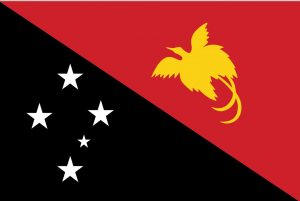
Sustainability Efforts
Country: Paraguay
Explore sustainability efforts in Paraguay. The United States Environmental Protection Agency (“EPA”) said it well when they state:
“Sustainability is based on a simple principle: Everything that we need for our survival and well-being depends, either directly or indirectly, on our natural environment. To pursue sustainability is to create and maintain the conditions under which humans and nature can exist in productive harmony to support present and future generations.”
About Paraguay
Paraguay, located in South America, is a landlocked country known for its unique cultural heritage, beautiful landscapes, and Guarani indigenous influence. It offers the colonial charm of Asunción, the capital, and historic Jesuit missions like Trinidad and Jesus. Paraguay’s natural wonders include the Pantanal wetlands and the Ybycuí National Park. The country’s rich Guarani culture is reflected in its language, crafts, and traditional music. Paraguayan cuisine features dishes like chipa and tereré, a traditional herbal drink. Paraguay’s warm climate, affordable prices, and friendly locals make it an off-the-beaten-path destination for travelers seeking a mix of culture and nature. Sustainability efforts in Paraguay will enhance the country’s future.
Sustainability Efforts
Toggle each button below to “open” and “close” the presented data.

Paraguay's progress in alleviating poverty has been commendable, with the poverty rate declining steadily over the years. Government-led initiatives, such as the National Development Plan and conditional cash transfer programs, have contributed to improvements in living standards and economic opportunities for vulnerable communities.

Food security remains a priority for Paraguay, especially in rural areas heavily reliant on agriculture. The government's focus on agricultural development and small-scale farming support has contributed to enhanced food production and accessibility.

Paraguay is committed to strengthening its healthcare system, investing in medical infrastructure, and expanding access to quality healthcare services. The nation's focus on preventive care and maternal health initiatives has contributed to improved health outcomes.

Education is a cornerstone of Paraguay's development agenda, with a focus on enhancing educational standards and increasing enrollment rates. The nation's commitment to improving educational infrastructure and empowering teachers is pivotal in nurturing human capital and driving economic progress.

Education is a cornerstone of Paraguay's development agenda, with a focus on enhancing educational standards and increasing enrollment rates. The nation's commitment to improving educational infrastructure and empowering teachers is pivotal in nurturing human capital and driving economic progress.

Access to clean water and sanitation is a critical area of concern in Paraguay, particularly in rural and marginalized areas. The government's endeavors to improve water infrastructure and sanitation services are vital in safeguarding public health and environmental sustainability.

Paraguay's abundance of renewable energy resources, particularly hydropower, provides a strong foundation for promoting clean energy. The country's commitment to exporting clean electricity and diversifying its energy mix fosters resilience and mitigates climate change impacts.

Paraguay's stable economic growth and investment-friendly environment have contributed to its development progress. The nation's focus on economic diversification and infrastructure development is vital in promoting sustainable economic growth and reducing dependence on specific sectors.

Innovation and technology play a critical role in Paraguay's economic transformation. The government's support for entrepreneurship and research and development initiatives aims to foster industry innovation and enhance competitiveness.

Paraguay acknowledges the importance of reducing inequalities and promoting social inclusion. Targeted social programs and policies to uplift vulnerable communities are essential in ensuring equitable access to opportunities and services for all citizens.

Paraguay's urban centers face challenges associated with rapid urbanization, such as urban sprawl and inadequate infrastructure. The nation's focus on sustainable urban planning and investments in public transportation aims to create livable and environmentally-friendly cities.

Promoting responsible consumption and production patterns is integral to Paraguay's environmental conservation efforts. Initiatives to promote sustainable farming practices and waste management underscore the nation's commitment to responsible resource utilization.

As a nation vulnerable to climate change, Paraguay is committed to climate action and environmental protection. The country's dedication to conserving its forests and biodiversity contributes to global climate efforts.

Paraguay's freshwater resources are vital to its ecological balance and agricultural sector. The government's focus on water management and conservation efforts safeguards its aquatic environment for future generations.

Paraguay's commitment to the rule of law and social justice is pivotal in fostering a stable and peaceful society. Ensuring access to justice and combating corruption are central pillars of Paraguay's governance agenda.

Paraguay's rich biodiversity and natural habitats hold cultural and ecological significance. The nation's efforts to preserve its forests, wetlands, and wildlife underscore its dedication to environmental conservation.

Paraguay recognizes the importance of partnerships in addressing shared challenges and achieving sustainable development. Collaborations with international organizations and neighboring countries strengthen the nation's capacity to implement its development agenda.



